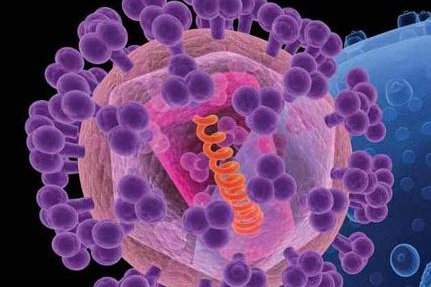Oct. 27 (UPI) -- A new HIV vaccine candidate is showing effectiveness in animal studies in stimulating an immune response against sugars that form a shield around HIV.
A team of researchers from the University of Maryland and Duke University created a new protein-sugar molecule that could protect against HIV.















